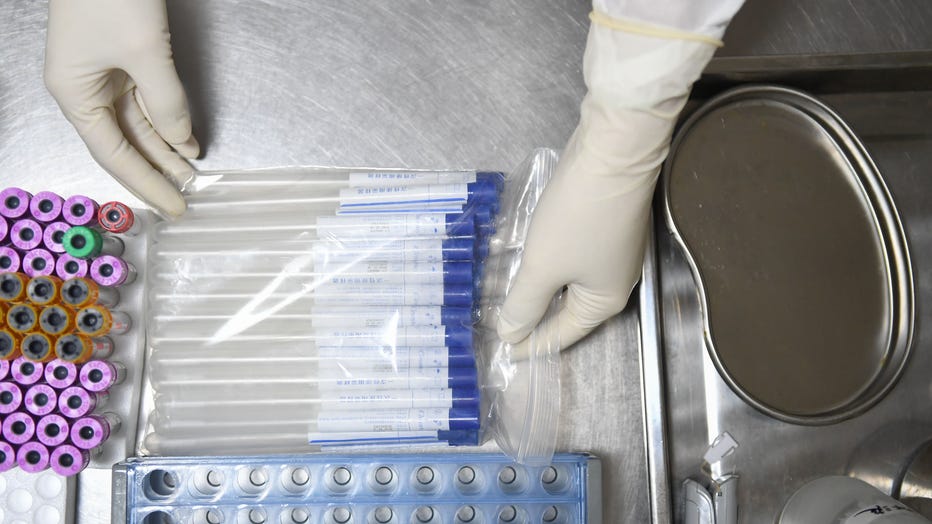US testing capacity for coronavirus delayed amid ‘inconclusive’ results from kits distributed by CDC

What is coronavirus?
From how it spreads to where it originated, here's a look at everything you need to know about the deadly contagion.
ATLANTA - The Centers for Disease Control and Prevention announced that some of its coronavirus test kits sent to laboratories across the U.S. have reported that they are not “working as expected.”
In a press briefing on Wednesday, Dr. Nancy Messonnier, director of the National Center for Immunization and Respiratory Diseases, said that when various state laboratories performed quality control tests on the kits, the labs “identified some inconclusive results.”
“Specifically, some public health labs at states were getting inconclusive results and what that means is that test results were not coming back as false positive or false negatives, but they were being read as inconclusive,” said Messonnier.
“Obviously a state wouldn’t want to be doing this test and using it to make clinical decisions if it isn’t working as well as perfectly at the state as it is at CDC,” added Messonnier.
The inconclusive results are not associated with actual clinical specimens from potential patients. Messonnier said state labs found issues with the verification process of the kits. Messonnier said she believes that a faulty agent used to verify test performance is being addressed.
“We think that maybe one of the reagents wasn’t performing consistently, so it’s a long story to say that we think that the issue at the states can be explained by one reagent that isn’t performing as it should consistently and that’s why we are re-manufacturing that reagent,” said Messonnier.
“This is part of a normal process and procedure and redoing the manufacturing is the next step.”
While she would not confirm which states are experiencing issues with their test kits, The Illinois Department of Public Health said it has not had any issues with the kits and it's continuing with its testing for the novel coronavirus.

FILE - Yi Junfeng arranges test kits at a fever clinic of Hunan People's Hospital in Changsha, central China's Hunan Province, Feb. 7, 2020. (Photo by Xinhua/Chen Zeguo via Getty Images)
Messonnier added that currently 12 states or localities around the U.S. are able to test for the virus as well as the CDC itself and assured the public that the CDC is currently not experiencing any delay for testing at their headquarters. She added that commercial labs will soon unveil their own tests.
“I am frustrated like I know many of you are that we have had issues with our test. I want to assure you that we are working to modify the kit and hope to send out a new version to state and local jurisdictions soon,” said Messonnier. “It won’t be until we have results from every state that we know which states can continue.”
RELATED: Coronavirus more contagious than SARS or MERS, can live on surfaces for up to 9 days, studies say
The CDC announced last week that it had begun shipping about 200 kits to laboratories in the United States and roughly 200 more to labs in more than 30 other countries. Each kit can test about 700 to 800 specimens from patients, the agency said.
The CDC on Tuesday warned the American public to prepare for an an outbreak of the disease, which has spawned more than 80,000 cases of COVID-19 around the world but relatively few so far in the U.S.
The U.S. count includes 14 Americans who traveled back from outbreak areas in China, or their spouses; three people who were evacuated from the central China city of Wuhan; and 42 American passengers on the Diamond Princess cruise ship who were evacuated by the federal government to the U.S. from where the ship was docked in Japan.
RELATED: South Korean coronavirus cases jump again, 1st US soldier infected
As far as criteria for testing in the United States, Messonnier said that the CDC is specifically focused on people who experience the spectrum of symptoms associated with the virus, such as fever, respiratory symptoms, cough, shortness of breath, and those who have travel history that matches with areas largely impacted by the illness.
“We’re comfortable with that as the basic criteria because so far, we are not seeing widespread community spread in the United States. That is that the cases we’re seeing are all directly linked with travel to Hubei and China,” said Messonnier.
The Associated Press contributed to this story. The story was reported in Los Angeles.

